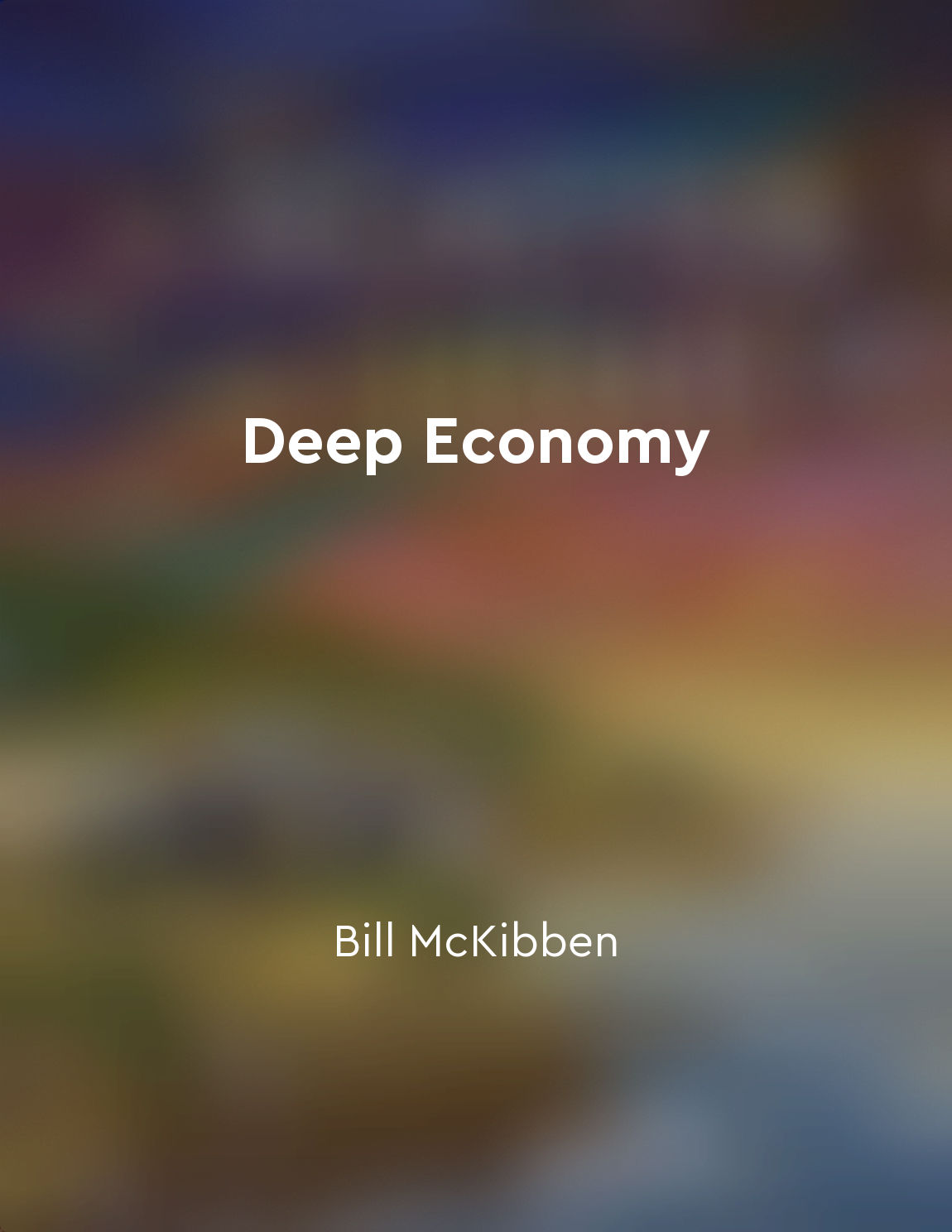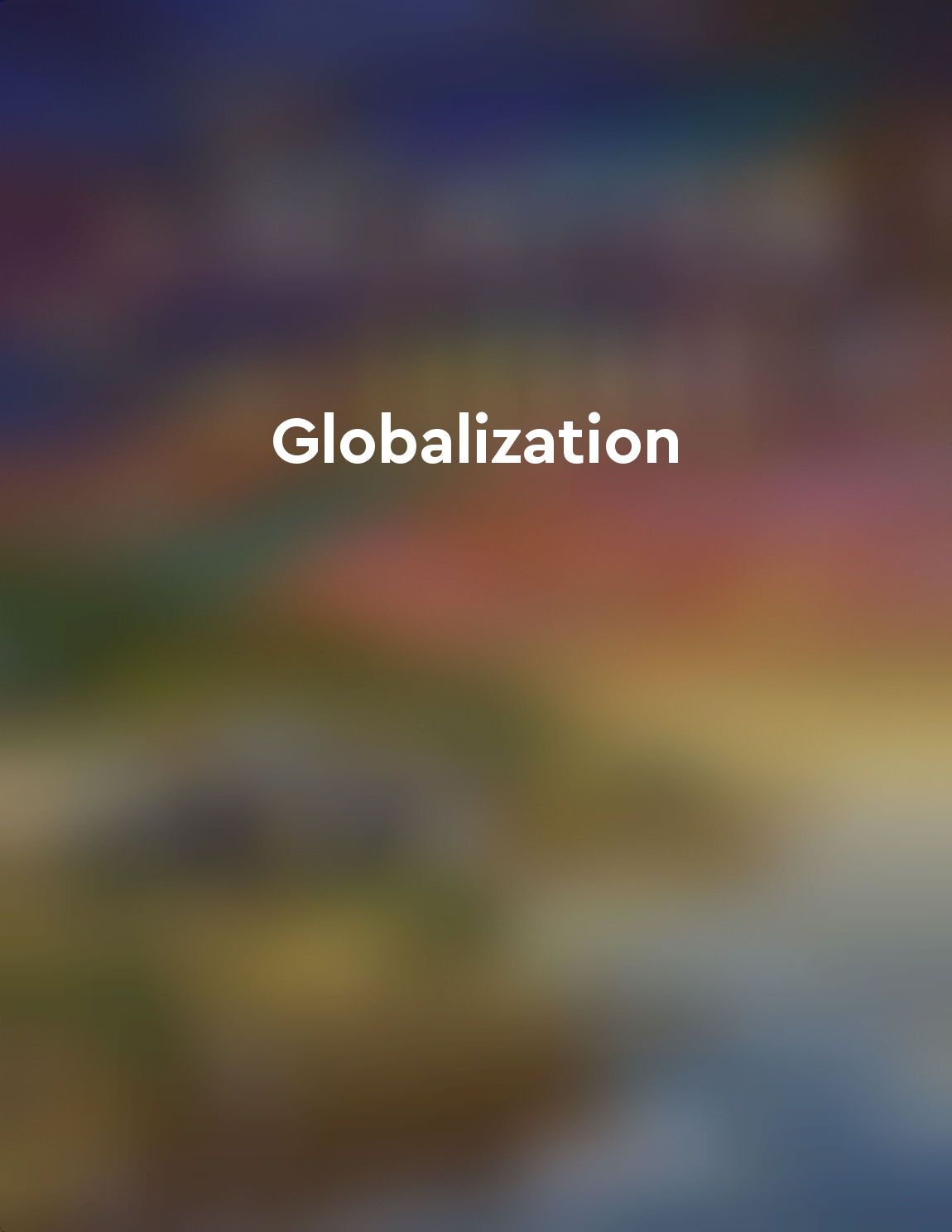Global economy undermines local communities from "summary" of The Great Transformation by Karl Polanyi
The rise of the global economy poses a significant threat to the stability and resilience of local communities. As economic activity becomes increasingly interconnected on a global scale, the autonomy and self-sufficiency of local communities are compromised. This undermines the social fabric that holds these communities together, eroding their ability to meet their own needs and address local challenges. In a global economy driven by profit-seeking and market forces, the interests of local communities are often sacrificed in the pursuit of economic growth and efficiency. This can lead to the exploitation of natural resources, labor, and markets in ways that harm local communities and undermine their long-term well-being. As economic power becomes concentrated in the hands of a few global actors, local communities are left vulnerable and marginalized. Moreover, the expansion of the global economy can disrupt traditional ways of life and cultural practices that have sustained local communities for generations. As global economic forces penetrate into every corner of the world, local identities and customs are often overshadowed or commodified, leading to a loss of cultural heritage and a weakening of community bonds. This can result in social dislocation, alienation, and a sense of rootlessness among members of local communities. Furthermore, the global economy can exacerbate inequalities within and among local communities, as wealth and resources flow upwards to global centers of power and influence. This can widen the gap between rich and poor, exacerbate social tensions, and undermine the social cohesion that is essential for the well-being of local communities. As economic disparities grow, so too do challenges related to poverty, unemployment, and social exclusion, creating further strain on the fabric of local communities. In order to address these challenges, it is essential to reexamine the role of the global economy in relation to local communities. By prioritizing the needs and interests of local communities, and ensuring that economic activity is conducted in a way that is sustainable, equitable, and inclusive, it is possible to build a more resilient and harmonious global economic system. Only by recognizing the importance of local communities and empowering them to shape their own economic destinies can we create a more just and sustainable world for all.Similar Posts

The pursuit of endless growth is unsustainable
Our current economic system is built on the premise that endless growth is not only possible but necessary. We are constantly b...
Solidarity is key to change
Solidarity is not just a nice idea or a feel-good slogan. It is a powerful force that has the potential to bring about real and...

Economic growth does not equal progress
The notion that more economic growth automatically translates into progress is deeply ingrained in our society. We are conditio...

Climate change is a real and urgent threat
The evidence is clear: the planet is warming, and human activity is the primary cause. The consequences of this warming are alr...

Intercultural understanding
Intercultural understanding is a crucial aspect of navigating the complexities of our globalized world. It involves developing ...
People are kept in ignorance and poverty
The powerful elite ensure that the masses remain ignorant and impoverished. This is a deliberate strategy to maintain control a...
Loss of trust in institutions
The erosion of confidence in our institutions is a troubling trend that has become increasingly apparent in recent years. Peopl...
Economic crises can disrupt societal stability
Economic crises possess a formidable power to disrupt the stability of society. When the economy experiences a sudden downturn,...
